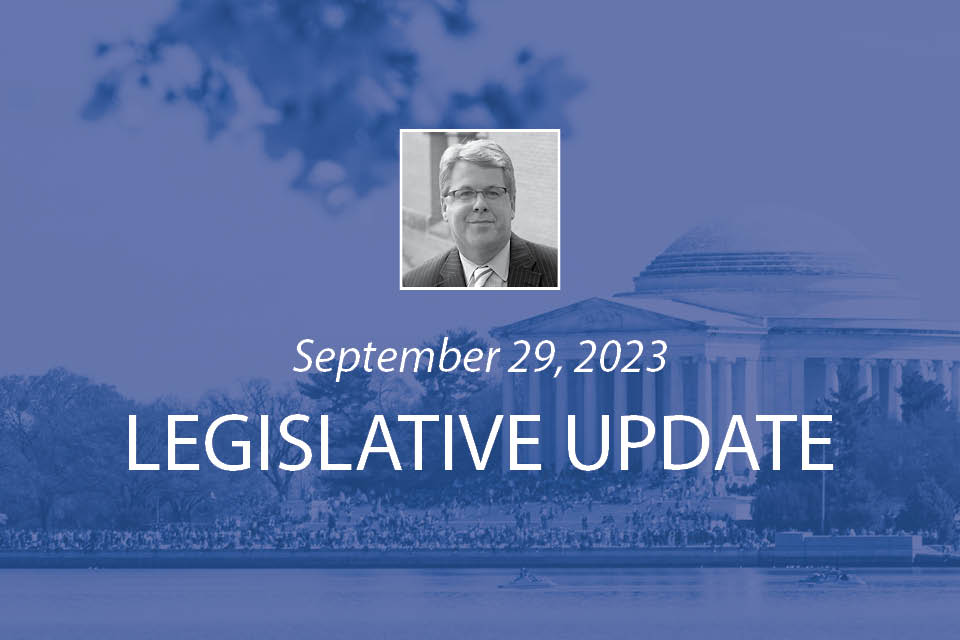House Holds Hearing on EPA’s PM 2.5 Rule
Last week, the House Energy and Commerce Committee’s Environment, Manufacturing and Critical Materials Subcommittee held a hearing to receive testimony from witnesses about the impacts of EPA’s proposed particulate matter (PM) 2.5 rule. Particulate matter is a broad descriptor for fine particles such as dust from unpaved roads or fields that may become airborne and inhaled. Sources of PM are myriad and include construction and logging sites, manufacturing operations, vehicle exhaust and wood burning. In January, EPA proposed tightening the current PM 2.5 standard (which regulates fine particles equal to or less than 2.5 microns in size) from the current 12 micrograms per cubic meter to somewhere in the 8-10 micrograms per cubic meter range.
To provide context, 9 micrograms per cubic meter is considered the background level for PM 2.5—meaning that is the level that is in currently in the air we breathe. Serious concerns have been raised by the business community about what this action would do to the ability of manufacturers to expand operations, for example, or conduct most commercial activity in areas that would automatically fall into nonattainment following imposition of a stricter PM 2.5 standard.
Earlier this year, Senate Environment and Public Works Committee Chairman Shelley Moore Capito (R-WV) introduced legislation (S. 2125) that seeks to address some of the underlying issues that have led to the current PM 2.5 challenge. Under the Clean Air Act, EPA is required to review National Ambient Air Quality Standards (NAAQS) for the six so-called “criteria” pollutants—of which particulate matter is one. This has resulted in a situation where standards are set and almost immediately are under EPA review again, creating uncertainty for the regulated community. Capito’s bill would change the mandatory review period from 5 to 10 years and authorize EPA to consider technological feasibility when considering revising NAAQS. Currently her bill is pending in the Senate Environment and Public Works Committee and has 8 Republican cosponsors.
Hope for 100% Bonus Depreciation
In conversations with committee staff and key Congressional offices this week, ABMA picked up signals that there may be some life in efforts move a tax package through the House. Recall that the House Ways & Means Committee reported a group of bills earlier this summer that extend a number of business tax benefits that had expired or are phasing out. These include the 100 percent bonus depreciation for investments in machinery and equipment and the research and development tax credit. The former began to ratchet down beginning this year and the latter sunset in 2022. The package has not received House floor consideration because several Republicans and Democrats from high state and local tax (SALT) states have been advocating for inclusion of language either modifying or removing the $10,000 SALT cap. House Ways & Means Committee Chairman Jason Smith has been hearing increasingly from small businesses in Missouri that the bonus depreciation issue is having a serious impact on their bottom line. Smith signaled he intends to push leadership to schedule a floor vote on the package later this fall and that progress was being made on the SALT issue.
In terms of legislative vehicles, the Taiwan Expedited Double Tax Relief Act may be the bill on which these tax extenders ultimately ride. This legislation has moved out of both the House Ways & Means and Senate Finance Committees with bipartisan support. There is a scenario which is shaping up where the tax extenders are amended into the bill later this year and passed. We will keep you updated on our progress.
Government Shutdown Remains Likely
As we have noted in our last several Advocates, a federal government shutdown of some duration is looking likely. Earlier this week, the Senate approved a procedural motion to advance a continuing resolution (CR) to fund the government through November 17. That CR also provides approximately $6.15 billion in funding for Ukraine and $5.99 billion in disaster assistance. The legislation also temporarily extends the authority of the Federal Aviation Administration, which also expires at midnight Saturday.
This measure is expected to pass the Senate on a bipartisan vote this week, but right now is dead on arrival in the House. For this reason, we anticipate a lapse in federal government funding beginning October 1. The bottom line is that, given the evenly divided partisan makeup of both chambers, at some point House Republicans are going to have to reach across the aisle to pass a government funding measure. ABMA is close to the action here in Washington and will report on developments.




